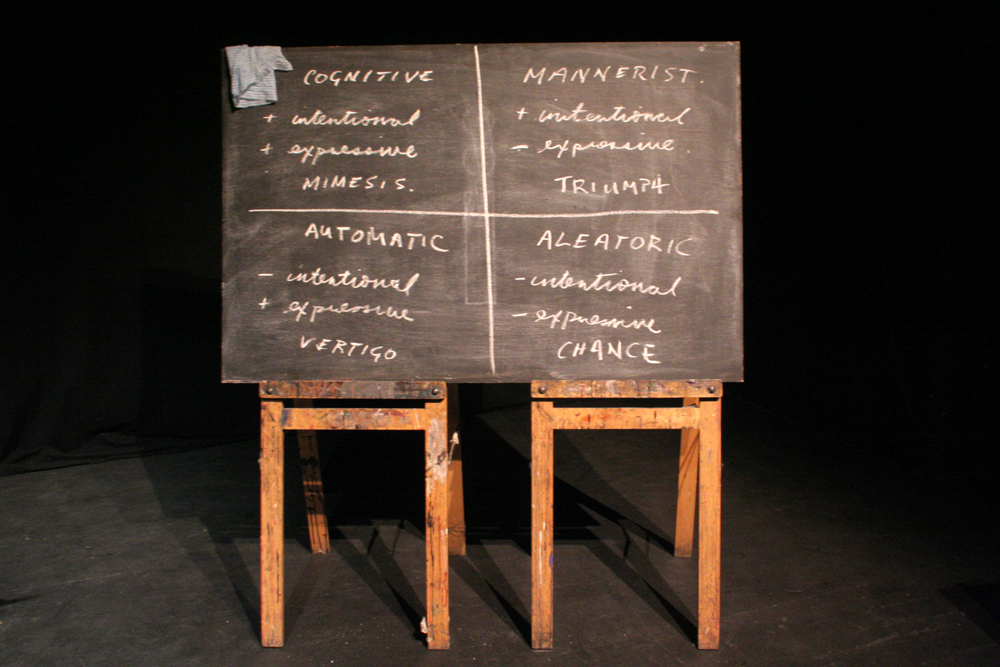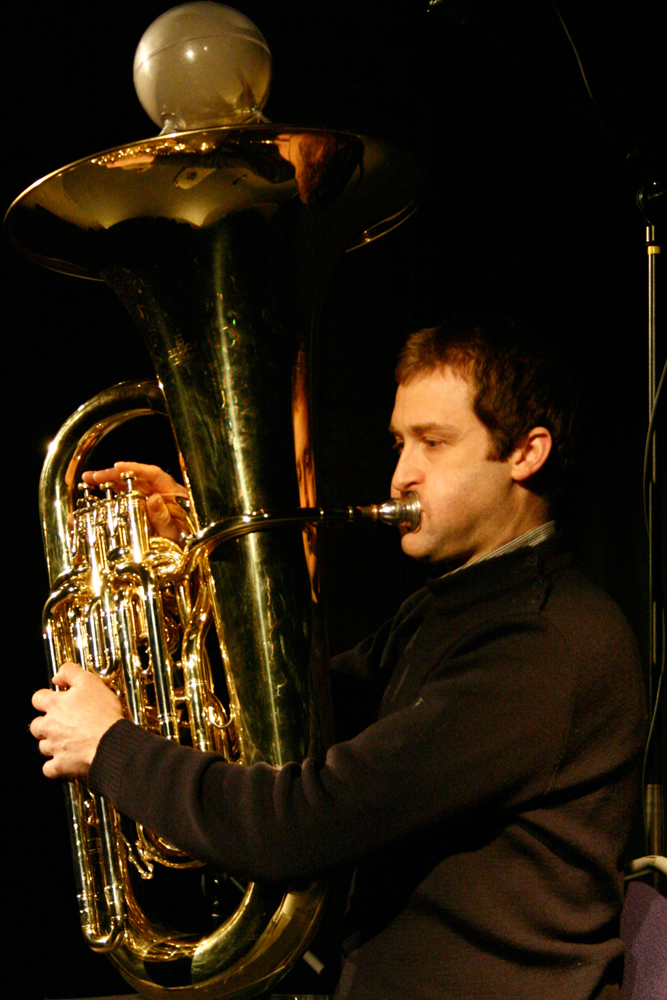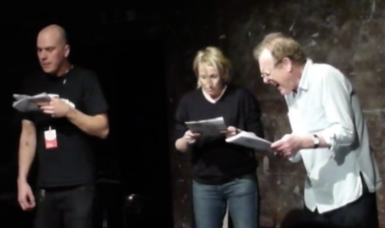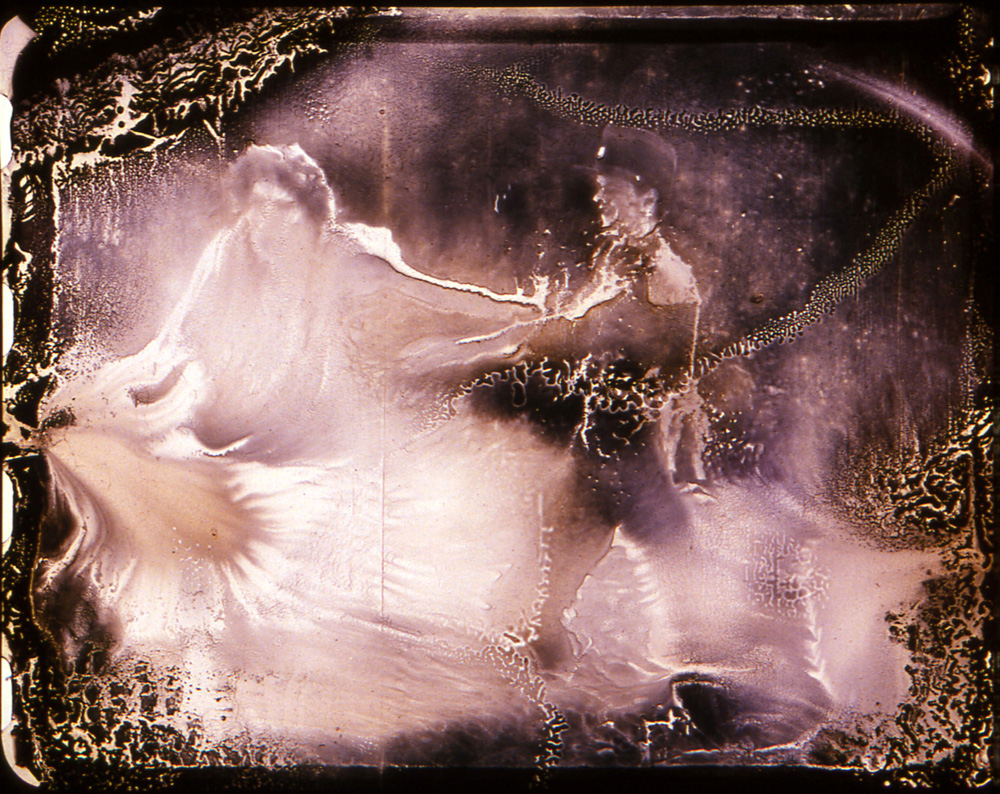
Talk: Propositions for an Inhabited Architecture of Listening
Jean-Luc Guionnet
Jean-Luc Guionnet will be giving a talk as part of the music department’s ongoing series of colloquia.
Arika have been creating events since 2001. The Archive is space to share the documentation of our work, over 600 events from the past 20 years. Browse the archive by event, artists and collections, explore using theme pairs, or use the index for a comprehensive overview.

Jean-Luc Guionnet will be giving a talk as part of the music department’s ongoing series of colloquia.

Goofily deformed, deeply thought vocal jams: like the sound of your own breath rushing through your head.

Instead of the one-way monologue of normal performance, what would be the result of an actual collective dialogue? Where would it go?

Christian Bök‘s work spans thrillingly conceptual poetry to body-shaking vocal performances.

Robin Hayward – exploring the micro-sounds of a tuba, filling slowly with sand.
Edinburgh. Nigh-inaudible improv jams with disabled instruments from the makers of Giant Tank and Pizza Boy Delivery.

GIO’s bottomless throat, Blood Stereo’s slobber gobbler and the Mouth Of The South tangle tonsils over Steve McCaffrey’s Carnival

A kind of an informal overview of INSTAL.

During their time in Scotland for Instal 06 Dave Dove, Bhob Rainey and Greg Kelly did some improvisation workshops and performances in and around Glasgow.

Each film in this programme celebrates process; the decay of emulsion, the properties of dust and dirt, the manipulation of time. Post the dawn of the digital age, we reflect on our love of the film form, celluloid as an object, a medium and a physical entity.

How might two of the great musicians working within contrasting traditions of freedom collaborate? What might this produce: musically, socially, allegorically?

How do communities practice being one another’s means, addressing their material problems facing them replicating the state’s violent logic of who is disposable.